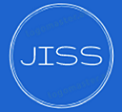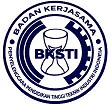Determinan penerapan protokol kesehatan, pengetahuan tentang covid-19 dan minat beli terhadap keputusan pembelian dalam melakukan dine in
Abstract
Keywords
Full Text:
PDF (IDN)References
F. Safara, “A Computational model to predict consumer behaviour during Covid-19 pandemic,” Computational Economics, vol. 59, no. 4, pp. 1525–1538, Apr. 2022, doi: 10.1007/s10614-020-10069-3.
L. Svajdova, “Consumer Behaviour during Pandemic of COVID-19,” Journal of International Business Research and Marketing, vol. 6, no. 3, pp. 34–37, 2021.
J. C. Hoekstra and P. S. H. Leeflang, “Marketing in the era of COVID-19,” Italian Journal of Marketing, vol. 2020, no. 4, pp. 249–260, Dec. 2020, doi: 10.1007/s43039-020-00016-3.
K. Kellens, R. Mertens, D. Paraskevas, W. Dewulf, and J. R. Duflou, “Environmental impact of additive manufacturing processes: Does AM contribute to a more sustainable way of part manufacturing?,” Procedia CIRP, vol. 61, pp. 582–587, Jan. 2017, doi: 10.1016/j.procir.2016.11.153.
P. K. Theodoridis and T. V. Zacharatos, “Food waste during Covid- 19 lockdown period and consumer behaviour – The case of Greece,” Socio-Economic Planning Sciences, p. 101338, May 2022, doi: 10.1016/j.seps.2022.101338.
H. Jo, E. Shin, and H. Kim, “Changes in consumer behaviour in the post-covid-19 era in Seoul, South Korea,” Sustainability, vol. 13, no. 1, p. 136, Jan. 2021, doi: 10.3390/su13010136.
D. Das, A. Sarkar, and A. Debroy, “Impact of COVID-19 on changing consumer behaviour: Lessons from an emerging economy,” International Journal of Consumer Studies, vol. 46, no. 3, pp. 692–715, 2022, doi: 10.1111/ijcs.12786.
P. K. Theodoridis and A. Kavoura, “The Impact of Covid-19 on consumer behaviour: The Case of Greece,” in Strategic Innovative Marketing and Tourism in the COVID-19 Era, Cham, 2021, pp. 11–18, doi: 10.1007/978-3-030-66154-0_2.
L. Eger, L. Komárková, D. Egerová, and M. Mičík, “The effect of COVID-19 on consumer shopping behaviour: Generational cohort perspective,” Journal of Retailing and Consumer Services, vol. 61, p. 102542, Jul. 2021, doi: 10.1016/j.jretconser.2021.102542.
M. Veeragandham, N. Patnaik, R. Tiruvaipati, and M. Guruprasad, “Consumer buying behaviour towards e-commerce during COVID-19,” International Journal of Research in Engineering, Science and Management, vol. 3, no. 9, pp. 78–82, Sep. 2020, doi: 10.47607/ijresm.2020.292.
P. Jílková and P. Králová, “Digital Consumer Behaviour and eCommerce Trends during the COVID-19 Crisis,” International Advances in Economic Research, vol. 27, no. 1, pp. 83–85, Feb. 2021, doi: 10.1007/s11294-021-09817-4.
S. Goswami and V. Chouhan, “Impact of change in consumer behaviour and need prioritisation on retail industry in Rajasthan during COVID-19 pandemic,” Materials Today: Proceedings, vol. 46, pp. 10262–10267, Jan. 2021, doi: 10.1016/j.matpr.2020.12.073.
A. A. Alessa, T. M. Alotaibie, Z. Elmoez, and H. E. Alhamad, “Impact of COVID-19 on entrepreneurship and consumer behaviour: A case study in Saudi Arabia,” The Journal of Asian Finance, Economics and Business, vol. 8, no. 5, pp. 201–210, 2021, doi: 10.13106/jafeb.2021.vol8.no5.0201.
M. Jeong, K. Kim, F. Ma, and R. DiPietro, “Key factors driving customers’ restaurant dining behavior during the COVID-19 pandemic,” International Journal of Contemporary Hospitality Management, vol. 34, no. 2, pp. 836–858, Jan. 2021, doi: 10.1108/IJCHM-07-2021-0831.
E. Yost and Y. Cheng, “Customers’ risk perception and dine-out motivation during a pandemic: Insight for the restaurant industry,” International Journal of Hospitality Management, vol. 95, p. 102889, May 2021, doi: 10.1016/j.ijhm.2021.102889.
C. Wei, H. Chen, and Y. M. Lee, “COVID-19 preventive measures and restaurant customers’ intention to dine out: the role of brand trust and perceived risk,” Serv Bus, Oct. 2021, doi: 10.1007/s11628-021-00462-9.
C. Wei, H. Chen, and Y. M. Lee, “Factors influencing customers’ dine out intention during COVID-19 reopening period: The moderating role of country-of-origin effect,” International Journal of Hospitality Management, vol. 95, p. 102894, May 2021, doi: 10.1016/j.ijhm.2021.102894.
X. Xu, L. Zhang, L. Chen, and F. Wei, “Does COVID-2019 have an Impact on the Purchase Intention of Commercial Long-Term Care Insurance among the Elderly in China?,” Healthcare, vol. 8, no. 2, p. 126, Jun. 2020, doi: 10.3390/healthcare8020126.
H. Wang, B. Ma, D. Cudjoe, R. Bai, and M. Farrukh, “How does perceived severity of COVID-19 influence purchase intention of organic food?,” British Food Journal, vol. ahead-of-print, no. ahead-of-print, Jan. 2021, doi: 10.1108/BFJ-06-2021-0701.
M. S. A. Latip, F. T. Newaz, S. N. N. A. Latip, R. Y. Y. May, and A. E. A. Rahman, “The sustainable purchase intention in a new normal of COVID-19: An Empirical Study in Malaysia,” The Journal of Asian Finance, Economics and Business, vol. 8, no. 5, pp. 951–959, 2021, doi: 10.13106/jafeb.2021.vol8.no5.0951.
P. Kotler and K. L. Keller, Marketing Management 16th edition. New Jersey: Pearson, 2016.
Fakultas Teknologi Pertanian, Universitas Brawijaya, R. Septifani, F. Achmadi, and I. Santoso, “Pengaruh green marketing, pengetahuan dan minat membeli terhadap keputusan pembelian,” Jurnal Manajemen Teknologi, vol. 13, no. 2, pp. 201–218, 2014, doi: 10.12695/jmt.2014.13.2.6.
Y. Fan et al., “Applications of structural equation modeling (SEM) in ecological studies: an updated review,” Ecological Processes, vol. 5, no. 1, p. 19, Nov. 2016, doi: 10.1186/s13717-016-0063-3.
R. R. Marliana, “Partial least square-structural equation modeling pada hubungan antara tingkat kepuasan mahasiswa dan kualitas Google classroom berdasarkan metode webqual 4.0,” Jurnal Matematika, Statistika dan Komputasi, vol. 16, no. 2, 2020, doi: 10.20956/jmsk.v16i2.7851.
C. A. Wardhani, A. Sugianto, and B. Hermana, “Pengaruh kualitas layanan logistik, kepuasan pelanggan, dan citra merek terhadap loyalitas pelanggan jasa logistik menggunakan structural equation model,” Jurnal Ilmiah Teknik Industri, vol. 8, no. 1, Aug. 2020, doi: 10.24912/jitiuntar.v8i1.5761.
R. Latumeten, Y. A. Lesnussa, and F. Y. Rumlawang, “Penggunaan Structural Equation Modeling (Sem) untuk Menganalisis Faktor yang Mempengaruhi Loyalitas Nasabah (Studi Kasus : PT Bank Negara Indonesia (BNI) KCU Ambon),” Sainmatika: Jurnal Ilmiah Matematika dan Ilmu Pengetahuan Alam, vol. 15, no. 2, Dec. 2018, doi: 10.31851/sainmatika.v15i2.2301.
I. P. Sari, A. Febtriko, T. Rahayuningsih, and A. A. Putra, “Integrasi pendekatan analytic network process dan structural equation modeling untuk pengukuran bullying di tempat kerja berbasis gender menggunakan sistem pakar,” Rabit : Jurnal Teknologi dan Sistem Informasi Univrab, vol. 4, no. 2, Jul. 2019, doi: 10.36341/rabit.v4i2.742.
DOI: http://dx.doi.org/10.36055/jiss.v8i1.13981
Refbacks
- There are currently no refbacks.
 is supported by
is supported by








